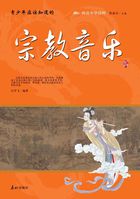Physical fitness is one of the great essentials of match play.Keenness can only be acquired if the physical, mental, and nervous systems are in tune.Consistent and systematic training is essential to a tournament player.
Regular hours of sleep, and regular, hearty food at regular hours are necessary to keep the body at its highest efficiency.Food is particularly important.Eat well, but do not over-eat, particularly immediately before playing.I believe in a large hearty breakfast on the day of a big match.This should be taken by nine-thirty.A moderate lunch at about one o'clock if playing at three.Do not eat very rich food at luncheon as it tends to slow you up on the court.Do not run the risk of indigestion, which is the worst enemy to dear eyesight.Rich, heavy food immediately before retiring is bad, as it is apt to make you "loggy" on the court the next day.
It is certain injury to touch alcoholic drink in any form during tournament play.Alcohol is a poison that affects the eye, the mind, and the wind--three essentials in tennis.Tobacco in moderation does little harm, although it, too, hits eye and wind.A man who is facing a long season of tournament play should refrain from either alcohol or tobacco in any form.Excesses of any kind are bad for physical condition, and should not be chanced.
Late hours cause sluggishness of mind and body the next day.It is very dangerous to risk them before a hard match.The moving pictures immediately before playing tennis are bad, owing to the eye strain caused by the flicker of the film and the strong light of the camera.Lead a normal, healthy life, and conserve your nervous force wherever possible, as you will need it in the hard matches.
"Staleness" is the great enemy of players who play long seasons.It is a case of too much tennis.Staleness is seldom physical weariness.A player can always recover his strength by rest.Staleness is a mental fatigue due often to worry or too close attention to tennis, and not enough variety ofthought.Its symptoms are a dislike for the tennis game and its surroundings, and a lack of interest in the match when you are on the court.I advocate a break in training at such a time.Go to the theatre or a concert, and get your mind completely off tennis.Do your worrying about tennis while you are playing it, and forget the unpleasantness of bad play once you are off the court.Always have some outside interest you can turn to for relaxation during a tournament; but never allow it to interfere with your tennis when you should be intent on your game.A nice balance is hard to achieve, but, once attained is a great aid to a tournament player.I find my relaxation in auction bridge.I know many other players who do likewise.Among them are Mrs.Franklin Mallory, Wallace F.Johnson, W.
M.Johnston and Samuel Hardy.
The laws of training should be closely followed before and after a match.Do not get chilled before a match, as it makes you stiff and slow.Above all else do not stand around without a wrap after a match when you are hot or you will catch cold.
Many a player has acquired a touch of rheumatism from wasting time at the close of his match instead of getting his shower while still warm.That slight stiffness the next day may mean defeat.A serious chill may mean severe illness.Do not take chances.
Change your wet clothes to dry ones between matches if you are to play twice in a day.It will make you feel better, and also avoid the risk of cold.
Tournament players must sacrifice some pleasures for the sake of success.Training will win many a match for a man if he sticks to it.Spasmodic training is useless, and should never be attempted.
The condition a player is, in is apt to decide his mental viewpoint, and aid him in accustoming himself to the external conditions of play.
All match players should know a little about the phenomenon of crowd-psychology since, as in the case of the Church-Murray match I related some time back, the crowd may play an important part in the result.
It seldom pays to get a crowd down on you.It always pays to win its sympathy.I do not mean play to the gallery, for that will have the oppositeeffect than the one desired.
The gallery is always for the weaker player.It is a case of helping the "under-dog." If you are a consistent winner you must accustom yourself to having the gallery show partiality for your opponent.It is no personal dislike of you.It is merely a natural reaction in favour of the loser.Sometimes a bad decision to one play will win the crowd's sympathy for him.Galleries are eminently just in their desires, even though at times their emotions run away with them.
Quite aside from the effect on the gallery, I wish to state here that when you are the favoured one in a decision that you know is wrong, strive to equalize it if possible by unostentatiously losing the next point.Do not hit the ball over the back stop or into the bottom of the net with a jaunty air of "Here you are." Just hit it slightly out or in the net, and go on about your business in the regular way.Your opponent always knows when you extend him this justice, and he appreciates it, even though he does not expect it.Never do it for effect.It is extremely bad taste.Only do it when your sense of justice tells you you should.














